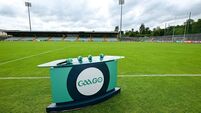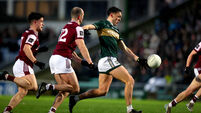Jim Gavin says military background enhanced his leadership qualities

“We have a very open culture, if they’re unhappy they can ask us to leave. Simple as that.
“It’s two-way. We’re there to facilitate. That culture’s from the Defence Forces - service not self. In the military there’s people above you and below but you’re there to serve.












